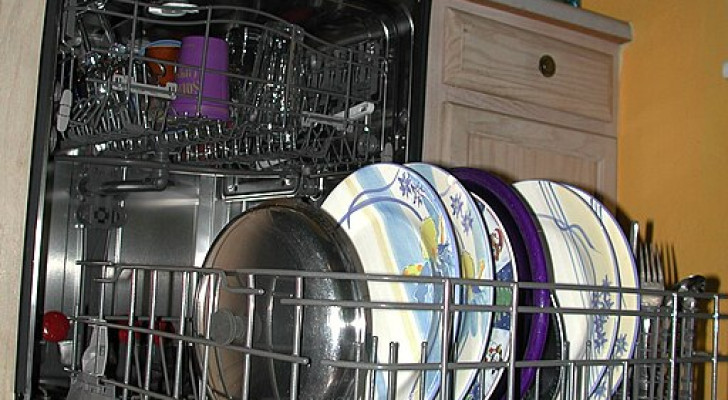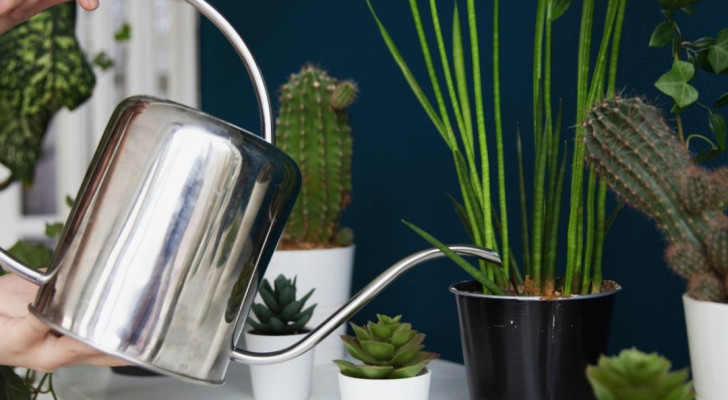A fertilizer for strawberries: just a handful of the right products will guarantee you a bumper crop
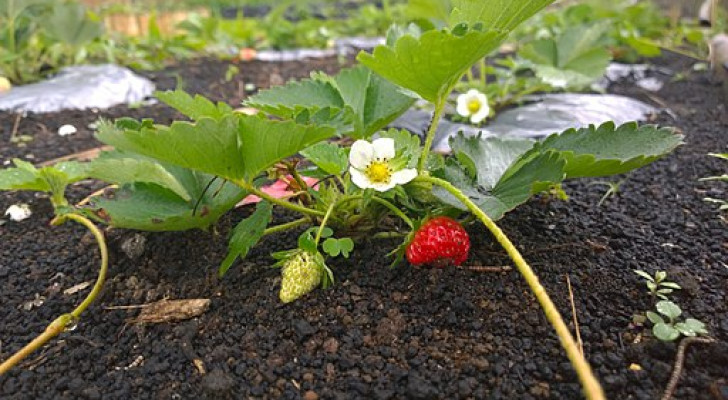
If you decide to grow strawberries, you are obviously hoping for an abundant harvest.
Amongst other factors to consider, deciding which fertilizer to use is critical in ensuring your strawberries will get all the nutrients they need to thrive.
To this end, check out the guide provided below:
DIY strawberry fertilizer
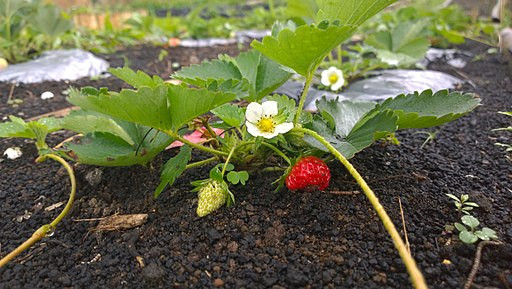
As a first step towards achieving a good harvest, 2-4 weeks before sowing your strawberry seeds, enrich the soil with manure or compost. This will provide your strawberry plants with everything they need in the early stages of their growth.
Whilst growing, your strawberries will need additional fertilization. A good, DIY fertilizer is made from a mixture of yeast and sugar: these two, rich ingredients that will nourish both your plants and the beneficial microorganisms in the soil. Yeast provides strawberries with proteins, minerals and vitamins (especially of group B); sugar will improve the condition of the soil by stimulating the activity of beneficial microorganisms.
This DIY fertilizer is easy to make: dissolve 50 grams of fresh yeast (or a teaspoon of dry yeast) in a little warm water, add a spoonful of sugar and leave this mixture to rest for 24 hours before diluting in water in 1:5 ratio. Once ready, water your strawberries generously with this DIY fertilizer.
Alternative ways to fertilize strawberries
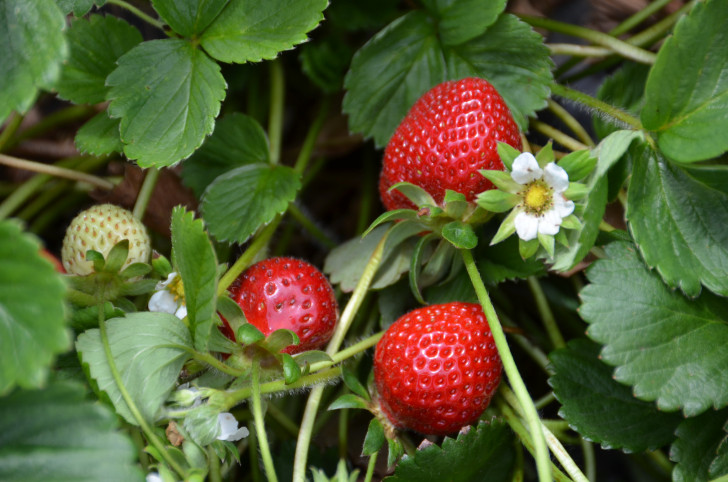
In addition to the DIY fertilizer described above, there are many other alternative, DIY fertilizers you can use:
- Nettle macerate, for example, is a liquid fertilizer which is very rich in micronutrients. You can make this macerate by collecting the nettles in a bucket and leaving them to steep and ferment in water (10 liters of water for each 1 kg of nettles). After about one month, the macerate will be ready to filter. Then, dilute the liquid macerate with water at a 1:20 ratio to complete the process;
- Stale bread is a common waste food, but instead of throwing this bread away, you can reuse it as fertilizer for your strawberries. Put the bread into water and keep it at room temperature for 1 week; thereafter, filter and dilute the mixture in water at a 1:10 ratio;
- Being rich in proteins, sugars, minerals and vitamins, milk can also be a good fertilizer for your strawberries; use expired milk to enrich the soil with essential nutrients and encourage microbial activity.
These fertilizers can be used during the growing season to support fruiting, but they are really important at the end of winter. At winter's end, these fertilizers will help prepare the strawberries for the resumption of their vegetative cycle and to transition to their dormant phase.
Now, you're ready for a bumper strawberry crop!
